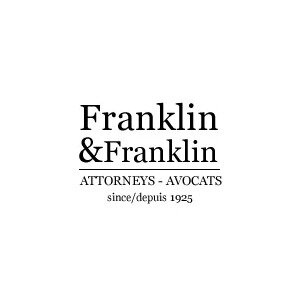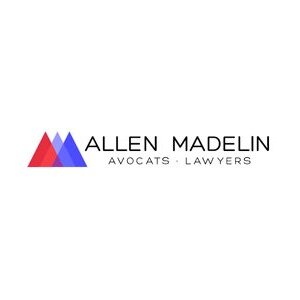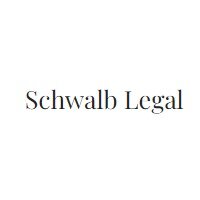Best Housing, Construction & Development Lawyers in Montreal
Share your needs with us, get contacted by law firms.
Free. Takes 2 min.
Free Guide to Hiring a Real Estate Lawyer
List of the best lawyers in Montreal, Canada
About Housing, Construction & Development Law in Montreal, Canada
Housing, Construction & Development law in Montreal, Canada encompasses regulations and rules relating to residential housing, construction projects, and urban development. These laws are in place to ensure the safe and efficient development, maintenance, and use of properties within the city. Understanding these laws is essential for homeowners, tenants, contractors, developers, and anyone involved in the construction or development industry.
Why You May Need a Lawyer
There are several situations where seeking legal help in Housing, Construction & Development in Montreal, Canada may be necessary:
- Disputes between landlords and tenants
- Breach of construction or development contracts
- Issues with property zoning or permits
- Negotiating lease agreements
- Dealing with construction defects or delays
Local Laws Overview
In Montreal, Canada, several key aspects of local laws are particularly relevant to Housing, Construction & Development:
- The Civil Code of Quebec: Provides regulations for property ownership, lease agreements, and construction contracts.
- Residential Tenancies Act: Governs the rights and responsibilities of landlords and tenants in residential properties.
- Municipal Bylaws: Establish regulations for zoning, building permits, and property maintenance.
- The Building Act: Sets out requirements for construction projects, permits, and inspections.
- Environmental Protection Regulations: Enforce guidelines for sustainable development and protection of natural resources.
Frequently Asked Questions
1. Can a landlord increase my rent without notice?
In Montreal, a landlord must provide written notice at least three months before increasing the rent. The increase must comply with the guidelines established by the Regie du logement, the governing rental board.
2. What should I do if my contractor does not complete the construction project on time?
If your construction project faces delays or is not completed on time, review your contract for any provisions regarding timelines and penalties. If necessary, consult with a lawyer to explore your options, including seeking compensation or terminating the contract.
3. What permits do I need for a construction project in Montreal?
The permits required for a construction project in Montreal depend on the nature and scope of the project. Generally, you will need building permits, zoning approvals, and possibly environmental permits. It is advisable to consult with a lawyer or contact the appropriate municipal office to ensure compliance with all necessary permits.
4. Can my landlord evict me without any reason?
No, a landlord in Montreal cannot evict a tenant without providing a valid reason. Acceptable reasons for eviction include non-payment of rent, breaching the lease agreement, or the landlord needing the property for their own use.
5. Are there any specific regulations for heritage properties in Montreal?
Yes, Montreal has specific regulations to preserve and protect heritage properties. Owners of heritage properties must obtain permits and approvals from the city's architectural advisory committee before making any significant alterations or demolitions. It is recommended to consult with a lawyer familiar with heritage regulations to ensure compliance.
Additional Resources
- Regie du logement: The governing board providing information on residential tenancy laws: https://www.rdl.gouv.qc.ca
- City of Montreal Urban Planning and Development: Offers information on zoning regulations and permits: http://ville.montreal.qc.ca/portal/page?_pageid=6897,68087659&_dad=portal&_schema=PORTAL
- Barreau du Quebec: The professional association of Quebec lawyers can provide referrals to legal professionals specializing in Housing, Construction & Development law: https://www.barreau.qc.ca
Next Steps
If you need legal assistance in Housing, Construction & Development matters in Montreal, Canada:
- Document the details of your situation, including any contracts, communication, or evidence.
- Consult with a specialized lawyer familiar with Housing, Construction & Development law in Montreal.
- Provide the lawyer with all relevant documents and details for a thorough review of your case.
- Follow the guidance and recommendations provided by your lawyer to navigate the legal process effectively.
Lawzana helps you find the best lawyers and law firms in Montreal through a curated and pre-screened list of qualified legal professionals. Our platform offers rankings and detailed profiles of attorneys and law firms, allowing you to compare based on practice areas, including Housing, Construction & Development, experience, and client feedback.
Each profile includes a description of the firm's areas of practice, client reviews, team members and partners, year of establishment, spoken languages, office locations, contact information, social media presence, and any published articles or resources. Most firms on our platform speak English and are experienced in both local and international legal matters.
Get a quote from top-rated law firms in Montreal, Canada — quickly, securely, and without unnecessary hassle.
Disclaimer:
The information provided on this page is for general informational purposes only and does not constitute legal advice. While we strive to ensure the accuracy and relevance of the content, legal information may change over time, and interpretations of the law can vary. You should always consult with a qualified legal professional for advice specific to your situation.
We disclaim all liability for actions taken or not taken based on the content of this page. If you believe any information is incorrect or outdated, please contact us, and we will review and update it where appropriate.












